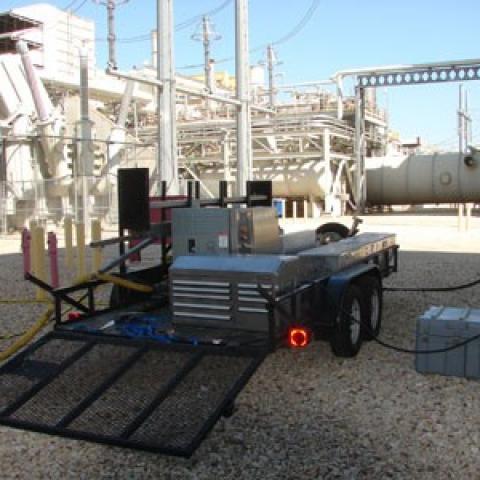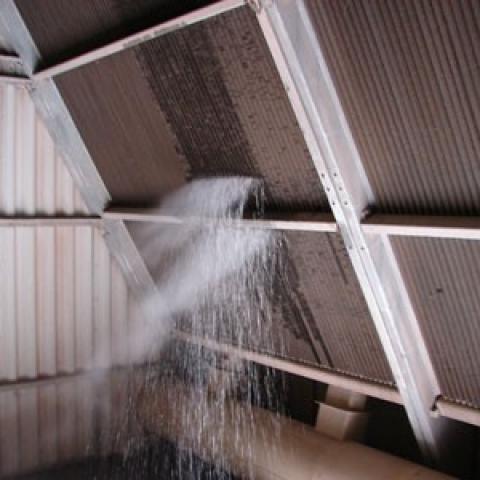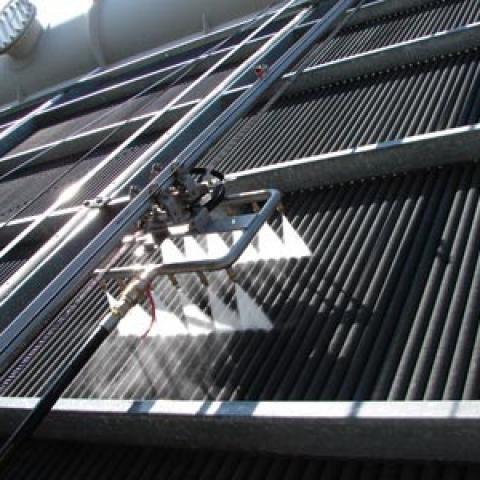Plant Recovers 2500 MW and Breaks Annual Production Record with FinTech ACC™
Rosebud Operating Services, Billings, Montana.
"It has completely changed the operating dynamics of this facility" This quote from Dan Gray, Director of Operations at Rosebud Operating Services outside Billings, Montana USA, is referring to his recent experience with CONCO's FinTech ACC™ cleaning. The Rosebud facility provides process steam to ExxonMobil and electricity to a local utility. Their unit operates at 95% base load and features a Balcke-Durr ACC producing 416,863 lb. /hr. steam flow across 10 cells covering an area of 1,606,112 sq. ft. Recently the efficiency of the unit began to drop, especially in high ambient temperatures, and the associated backpressure was costing the plant big. The plant had to start shedding load at ambient temperatures approaching the 80°F mark, and the production loss was exceeding 3000 megawatts annually and getting worse. That's when Dan called CONCO for assistance.
FinTech ACC™ in Action
CONCO's FinTech ACC™ system utilizes a computer driven carriage to accurately deliver an optimally shaped, overlapping jet of high-pressure water to the surface area of the air-cooled condenser fin coils. The water jets match the geometry of the coils, thanks to a fully customizable assembly built for CONCO by JNW cleaning systems of Germany and provide enough cleaning force to fully clean completely through the bundle, without damaging delicate finned tube surfaces. In Rosebud's case, the removal of accumulated airborne fouling like cottonwood, pet coke and fly ash improved their unit's performance by more than 10%. The unit started showing measurable performance improvements during the first one-quarter cleaned said Gray. And, because FinTech ACC™ is remotely operated; no personnel are required to climb on the unit, which allows the entire cleaning operation to be conducted on-line.
In the case of Rosebud, post cleaning results showed that the ACC unit could now go into the 90°F ambient temperature range before considering load shedding, and net megawatt hours lost have been reduced from over 3000+ NMWH to just 500 NMWH annually.




